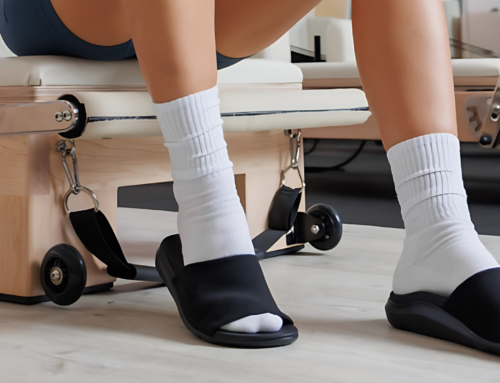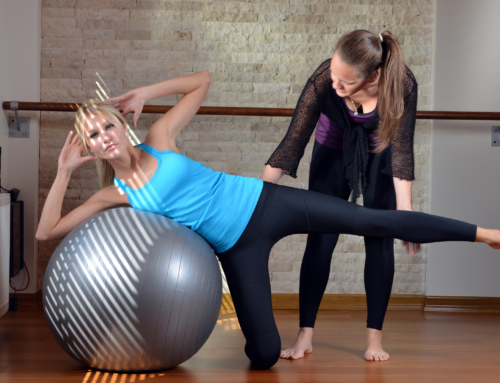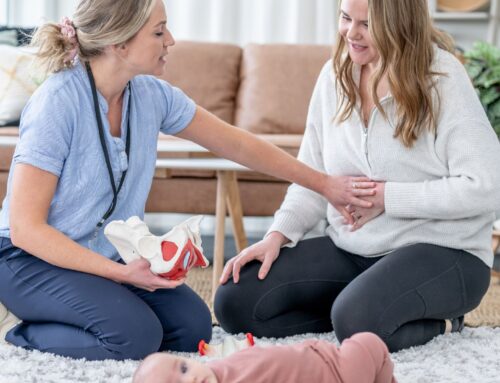Running is a popular form of exercise that offers numerous health benefits, including improved cardiovascular health, enhanced mood, and better overall fitness. However, it can also lead to injuries if not done correctly or if underlying conditions exist. One common complaint among runners is hip pain while running. This blog post explores the causes, symptoms, and physiotherapy treatment options for hip pain while running, emphasizing the importance of proper care and rehabilitation.

Causes of Hip Pain While Running
Hip pain while running can result from various factors, ranging from overuse injuries to structural abnormalities. Here are some common causes:
- Muscle Strains:
- Overuse or sudden increases in running intensity can lead to strains in the hip flexors, gluteal muscles, or hamstrings.
- Muscle strains often result from inadequate warm-up, poor running mechanics, or overtraining.
- Tendinitis:
- Inflammation of the tendons around the hip, such as the iliopsoas or gluteal tendons, can cause hip pain.
- Tendinitis is usually caused by repetitive stress or improper running form.
- Bursitis:
- Inflammation of the bursae (small fluid-filled sacs that cushion the hip joints) can lead to hip pain.
- Trochanteric bursitis, affecting the outer hip, is common among runners and results from repetitive motion and friction.
- Hip Labral Tears:
- The labrum is a ring of cartilage that surrounds the hip socket. Tears can occur due to repetitive hip movements, trauma, or structural abnormalities.
- Hip labral tears can cause deep hip pain, often accompanied by a clicking or locking sensation.
- Hip Impingement (FAI):
- Femoroacetabular impingement (FAI) occurs when there is abnormal contact between the hip bones, leading to joint damage.
- This condition is often caused by structural abnormalities and can result in hip pain during and after running.
- Stress Fractures:
- Repeated stress on the hip bones can lead to stress fractures, especially in runners who increase their mileage or intensity too quickly.
- Stress fractures cause localized pain that worsens with activity.
- Arthritis:
- Osteoarthritis or rheumatoid arthritis can cause hip pain in runners, especially older individuals.
- Arthritis results in joint inflammation and degeneration, leading to pain and stiffness.
- Poor Running Mechanics:
- Incorrect running form, improper footwear, or muscle imbalances can place undue stress on the hips, leading to pain.
Symptoms of Hip Pain While Running

The symptoms of hip pain while running can vary depending on the underlying cause. Common symptoms include:
- Pain:
- Pain can be sharp or dull and may be localized to the front, side, or back of the hip.
- Pain may worsen during or after running and can persist during rest.
- Stiffness:
- Reduced range of motion and stiffness in the hip joint, especially after periods of inactivity.
- Swelling:
- Swelling or inflammation around the hip joint, indicating underlying tissue damage.
- Weakness:
- Weakness in the hip or leg muscles, making it difficult to maintain running form or perform daily activities.
- Clicking or Locking:
- Sensation of clicking, popping, or locking in the hip joint, often associated with labral tears or hip impingement.
- Instability:
- Feeling of instability or giving way in the hip joint, indicating weakness or structural issues.
Physiotherapy Treatment for Hip Pain While Running

Physiotherapy is a critical component in the treatment and rehabilitation of hip pain while running. A tailored physiotherapy program can address the root cause of pain, improve strength and flexibility, and prevent future injuries. Here’s how physiotherapy can help:
- Assessment and Diagnosis:
- A thorough assessment by a physiotherapist to determine the specific cause of hip pain.
- This includes a detailed medical history, physical examination, and possibly imaging studies.
- Pain Management:
- Techniques such as ice or heat application, ultrasound, and electrical stimulation to reduce pain and inflammation.
- Soft tissue mobilization and massage to relieve muscle tension and improve blood flow.
- Restoring Range of Motion:
- Gentle stretching exercises to improve flexibility in the hip joint and surrounding muscles.
- Joint mobilization techniques to enhance joint mobility and reduce stiffness.
- Strengthening Exercises:
- Targeted strengthening exercises for the hip flexors, gluteal muscles, hamstrings, and core muscles.
- Strengthening weak muscles to support the hip joint and improve overall stability.
- Improving Running Mechanics:
- Analysis of running form and gait to identify and correct any biomechanical issues.
- Recommendations for proper footwear and running techniques to reduce stress on the hips.
- Balance and Proprioception Training:
- Exercises to improve balance and proprioception (awareness of body position) to enhance overall stability.
- Functional training to simulate running movements and ensure safe return to running.
- Education and Injury Prevention:
- Educating runners on proper warm-up and cool-down routines, stretching techniques, and gradual progression of running intensity.
- Providing guidance on cross-training activities to prevent overuse injuries and maintain overall fitness.
- Gradual Return to Running:
- Developing a gradual return-to-running program to ensure safe and effective recovery.
- Monitoring progress and making necessary adjustments to the rehabilitation plan.
Conclusion
Hip pain while running can be a significant setback for runners, but understanding the causes, symptoms, and treatment options can help manage and prevent this issue. Physiotherapy plays a crucial role in the effective treatment of hip pain, offering a comprehensive approach to pain management, strength building, and injury prevention. By addressing the root cause of hip pain, improving running mechanics, and providing targeted rehabilitation exercises, physiotherapy ensures a safe and successful return to running.
If you experience hip pain while running, seek prompt medical advice and consult a physiotherapist to develop a personalized treatment plan. With the right care and rehabilitation, you can overcome hip pain and continue to enjoy the many benefits of running.






